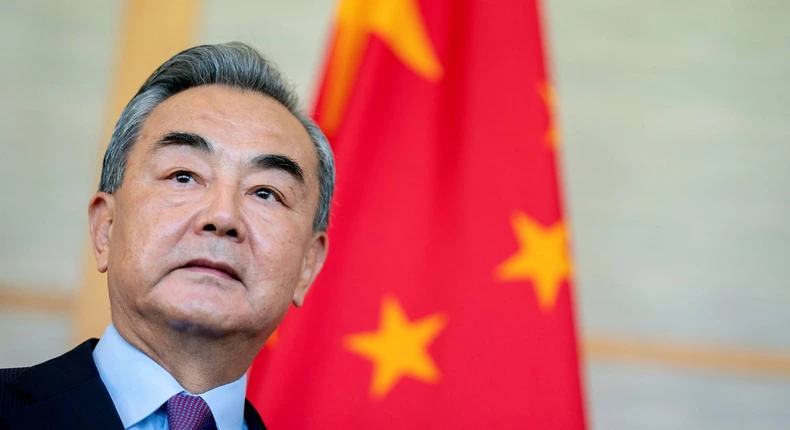China, the continent’s largest bilateral lender, released 17 African nations from their obligation to repay 23 interest-free loans due in 2021.
The circumstances surrounding the most recent relief effort reaffirm China’s intention for Africa to consider the Asian power its preferred long-term development partner.
- China, the continent’s largest bilateral lender, released 17 African nations from their obligation to repay 23 interest-free loans due in 2021
- The recent relief effort reaffirms China’s desire to be Africa’s long-term development partner
- Between 2000 and 2020, Chinese financiers and African governments signed 1,180 loan commitments totalling US$160 billion, according to China Africa Research Initiative(CARI)
China’s foreign minister, Wang Yi, stated, “in the face of a variety of hegemonic and bullying activities”
It’s possible that he was referring to the recent acrimonious trip that Nancy Pelosi, speaker of the House of Representatives in the United States, took to Taiwan.
An address given to Chinese and African diplomats on August 18 during a follow-up conference on the Forum on China-Africa Cooperation that took place in November of last year in Senegal was the venue for the assistance announcement. At that same summit last year, China announced a reduction in its pledge to Africa of 33 per cent.
This was done in an apparent display of concern for Africa’s indebtedness to China and against the backdrop of China’s slowing economic growth.
Because the beneficiaries and the amount were not published, specifics on the announced assistance are unknown.
China forgave the debts of 15 African nations, including Botswana, Burundi, Rwanda, Cameroon, the Democratic Republic of the Congo, and Mozambique, due on interest-free loans totalling US$ 113.8 million dollars and maturing in 2020.
China and Africa exchange non-interference pledges.
Yi expressed gratitude to the African nations for their unwavering support of China’s efforts to preserve its sovereignty, security, and territorial integrity.
“China appreciates the steadfast commitment of African countries to the one-China concept,” Yi added
He emphasised other points of a political agreement between China and Africa; as a result, Africa has received infrastructure and humanitarian investments funded by China.
Examples of these investments include the Foundiougne Bridge, which opened in Senegal this year, the Nairobi Expressway, which opened in Kenya, and emergency food assistance to Djibouti, Ethiopia, Somalia, and Eritrea.
According to the database maintained by the China Africa Research Initiative (CARI), between 2000 and 2020, Chinese financiers and African governments signed more than 1,180 loan commitments totalling US$160 billion.
Of these, two-thirds were for transport, power, and mining projects. To put it in dollar terms, the countries that have borrowed the most from China are Angola, Zambia, Ethiopia, Kenya, and Cameroon.
Yi committed to continuing Chinese investment in Africa, including financial backing for a “Great Green Wall” to combat climate change, the provision of food aid to seventeen nations, and increased Chinese imports from Africa.
At the same time, he reaffirmed a fundamental principle that underpins the relationship between the two parties:
“China will continue to help solve African challenges in the way appropriate to Africa.”
We are opposed to outside powers interfering in the internal affairs of African countries, and we are also opposed to fueling hostility and violence in Africa.
And Yi said that Africa wants a favourable and amicable cooperation environment, not the zero-sum Cold War mentality… a partnership that is mutually advantageous for the greater well-being of the people, as opposed to competition between big countries for geopolitical gains.
This was an apparent criticism of the United States and Europe’s motivations for imposing sanctions against Russia in its ongoing war in Ukraine.
This tone is becoming more and more popular in some areas of Africa, particularly in francophone nations that are seeking an end to France’s power in the sub-region. The current split between these two countries escalated just last week when Mali accused France of providing financial support to extremist groups to destabilise the west African nation of Mali.
The announcement also mentioned that China intends to increase the number of goods it buys from Africa. The statement said,
“We’ll keep importing more from the continent, help it build its manufacturing and agricultural sectors, and deepen our partnerships in fast-growing fields like the digital economy, green energy, and low-carbon industries.”
In conclusion, China said it will re-channel US$10 billion of its Special Drawing Rights (SDR) to African countries through the International Monetary Fund.
You may already be aware of this, but a widely-held belief is that China is setting debt traps in African countries.
In a similar spirit, one might hear the notion that a significant number of African countries are financially dependent on China.
However, according to recent research by Debt Justice, many African nations owe three times as much to Western banks, oil dealers, and asset managers as they do to Chinese lenders.
Blaming China for Africa’s financial woes is a simple distraction, according to the report, which also stated this point.
Read: Sunripe flags off first fresh avocados cargo to China
